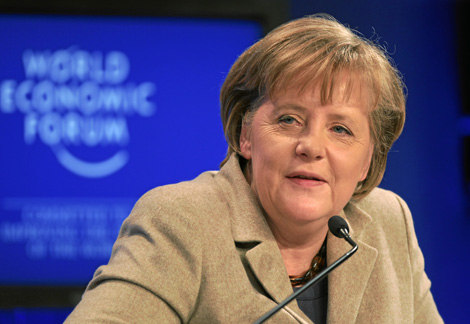 A new Eurobarometer survey shows, in connection with International Women's Day, that 78% of Europeans believe that more women in positions of political power in developing countries “would make things better”.
A new Eurobarometer survey shows, in connection with International Women's Day, that 78% of Europeans believe that more women in positions of political power in developing countries “would make things better”.
Indeed, more than three quarters of respondents said that increasing the number of women in leadership positions in developing countries would increase respect for human rights, with 72% saying that it would also improve living conditions and 65% believed that this would make it possible to avoid conflicts and wars.
More than nine out of ten Europeans believe that equality between men and women improves the way societies function in general and that all aid programs must take specific account of women's rights.
With regard to how problems in developing countries affect men and women, most respondents felt that women were more affected than men by physical violence (83%), as well as problems in accessing health. education (63%), disrespect for fundamental human rights and lack of income/employment (both 61%).
EU Development Commissioner Andris Piebalgs commented: “We put women at the heart of all our activities, ensuring that our aid programs take account of women in all sectors, from education to healthcare even agriculture and energy and for this reason I am delighted to see that the majority of Europeans agree with this approach'.
She added: “I'm also interested in how many people think women in power can have a positive impact. It is vital that all women are given the opportunity to fulfill their potential, no matter where they live”.
Women continue to be victims of severe discrimination in developing countries and face serious health risks, particularly those related to maternal health. Violence affects a third of all women throughout their lives. As the world's second largest donor, the EU has a crucial role to play in helping women and girls to develop.
Since 2004, thanks to the support of the Commission:
· More than 85 new students are enrolled in secondary education;
· More than 4 million births were attended by health personnel;
· 10,8 million consultations on reproductive health were carried out.
Context and main results
On International Women's Day, the European Commission presents a Eurobarometer survey with the views of European citizens on gender equality and the need to empower women in developing countries. As part of this survey, more than 25 000 citizens from the 27 Member States were consulted.
More than nine out of ten EU citizens felt that equality between men and women improves the way societies function and that all aid programs must specifically take into account women's rights.
The variability of the results obtained in the EU in terms of opinion on gender equality was extremely small, with the highest results in Sweden, the Netherlands and Romania (all 96%) and the lowest in Latvia, in Slovenia (both 87%) and Estonia (86%).
Overall, EU respondents consider that the issues that affect women more than men are physical violence (83%), problems in accessing education (63%), failure to respect fundamental human rights and lack of income. /employment (both 61%).
Hunger and malnutrition (50%) and HIV/AIDS (59%) were the only aspects that EU respondents believed to affect women and men in general equally.
Europeans are of the opinion that more women in positions of political power and influence would have a positive impact on developing countries. Respect for human rights was the element with the most positive responses in the EU, with more than three quarters of respondents saying that more women would 'make things better' (78%).
The living conditions of the population and the prevention of conflicts and wars came next, with, respectively, 72% and 65% of respondents also defending this point of view. It was mainly Swedish, Finnish and Irish respondents who said that having women in these positions would 'make things better'.


















Comments